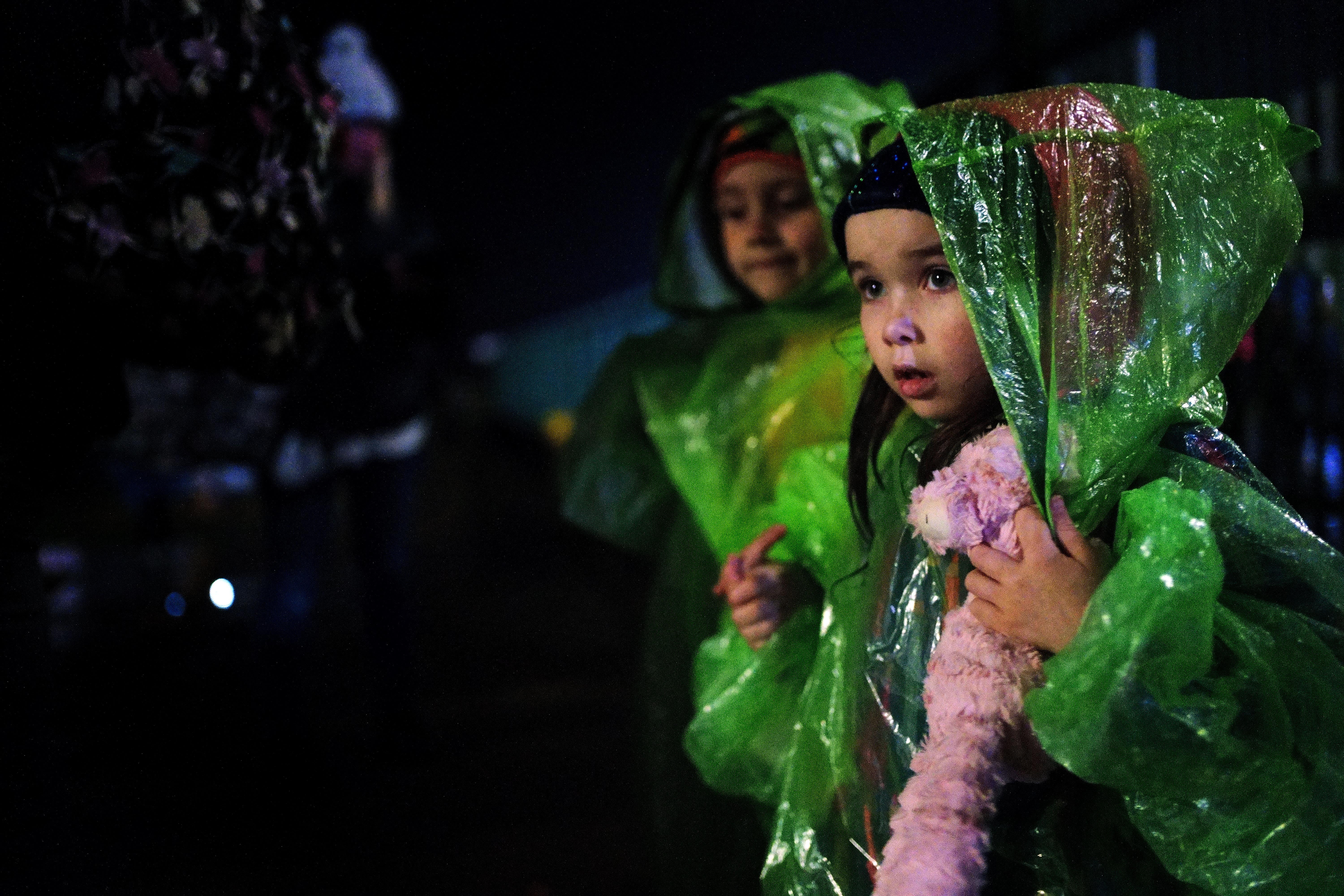Almost seven million Ukrainians helped by Disasters Emergency Committee appeal
The donations from Britons amount to £426 million.

Almost seven million Ukrainians have been helped by funds raised through the Disasters Emergency Committee (DEC) since the Russian invasion began, the group has said.
The “generous” donations to the Ukraine Humanitarian Appeal amount to £426 million – £6.35 for every person in the UK – and have helped 6.9 million Ukrainians.
It makes the DEC, which is an umbrella group of charities, the largest charity donor to the humanitarian response to the war, according to UN figures.
A total of £25 million was donated by the UK Government through the aid match scheme.
DEC charities have provided food, clean water, shelter, cash payments, healthcare, mental health support, winter and hygiene items, among other things since Russia launched its full-scale invasion on February 24 2022.
In the first six months of the war, they provided 1.9 million people with access to clean water and almost 400,000 people with hot meals and food parcels.
The DEC has worked with a network of local organisations, helping them scale up their response, as well as delivering aid directly.
Most of the aid (58%) has been spent inside Ukraine, with the rest being used to help refugees in neighbouring countries such as Poland, Hungary and Moldova.
During 2023, the DEC helped people stay safe and warm as they faced power cuts during the winter, and supported people forced to flee when the Kakhovka dam was breached in June.
More recently, DEC charities have been particularly focused on providing people in need with cash payments to allow them to buy essentials, and a large-scale project where Ukrainians are provided with cash to help with the cost of hosting people displaced from other parts of the country.
Providing basic essentials also “remains a priority”, the DEC said.
Chief executive Saleh Saeed said: “Last year I visited Ukraine to meet some of the people being helped with the money that has been so generously donated by the British public.
“I met people like Polina (whose name has been changed to protect her identity), a mum-of-three from Kharkiv who had fled the fighting while pregnant.
“To see that she was safe, with a place to stay, food and other items the family needed, thanks to donations from across the UK, was really heart-warming.
“To know that she is just one among millions of people that our member charities have been able to reach through this appeal is just incredible.”
The International Rescue Committee’s (IRC) country director in Ukraine Scott Lea said: “Thanks to funds from the DEC’s Ukraine appeal, the IRC have been able to rapidly provide timely cash distributions to sustain and empower families throughout the conflict – reaching almost 20,000 vulnerable households across Odesa, Mykolaiv, and Kherson by January 2024.
“Cash assistance affords people the dignity and choice to buy exactly what they need, when they need it – whether it be food, medicine, or other essentials.
“This vital support would not be possible without the generosity of the UK public, and the IRC and our fellow DEC agencies remain extremely grateful for their incredible compassion and solidarity with the people of Ukraine.”
Father Vitaliy Novak, chief executive of Depaul Ukraine, a local partner of DEC member charity Cafod, said: “We thank God we are still here after two years of conflict and that our staff and volunteers are alive.
“What I see here is that the scale of the conflict in some ways, especially in Kharkiv and Odesa, is even worse than at the beginning.
“The DEC’s support, not only financial but the sharing of knowledge and sharing of experience, has been vital for us.”
Agnieszka Kosowicz, president of the board at the Polish Migration Forum, a local partner of Plan International in Poland, said: “Two years after having to flee their homes, and still with no sign of when they may be able to return, the psychological needs of Ukrainian refugee children and adolescents in Poland have never been higher.
“With families split up, young Ukrainians continue to feel alone, isolated and distressed – especially the 150,000 who do not attend school.
“Losing access to education is a daily reality for children who are forced to flee their homes, but DEC funding has been crucial for helping us improve school enrolment for young Ukrainians in Poland.”
Bookmark popover
Removed from bookmarks